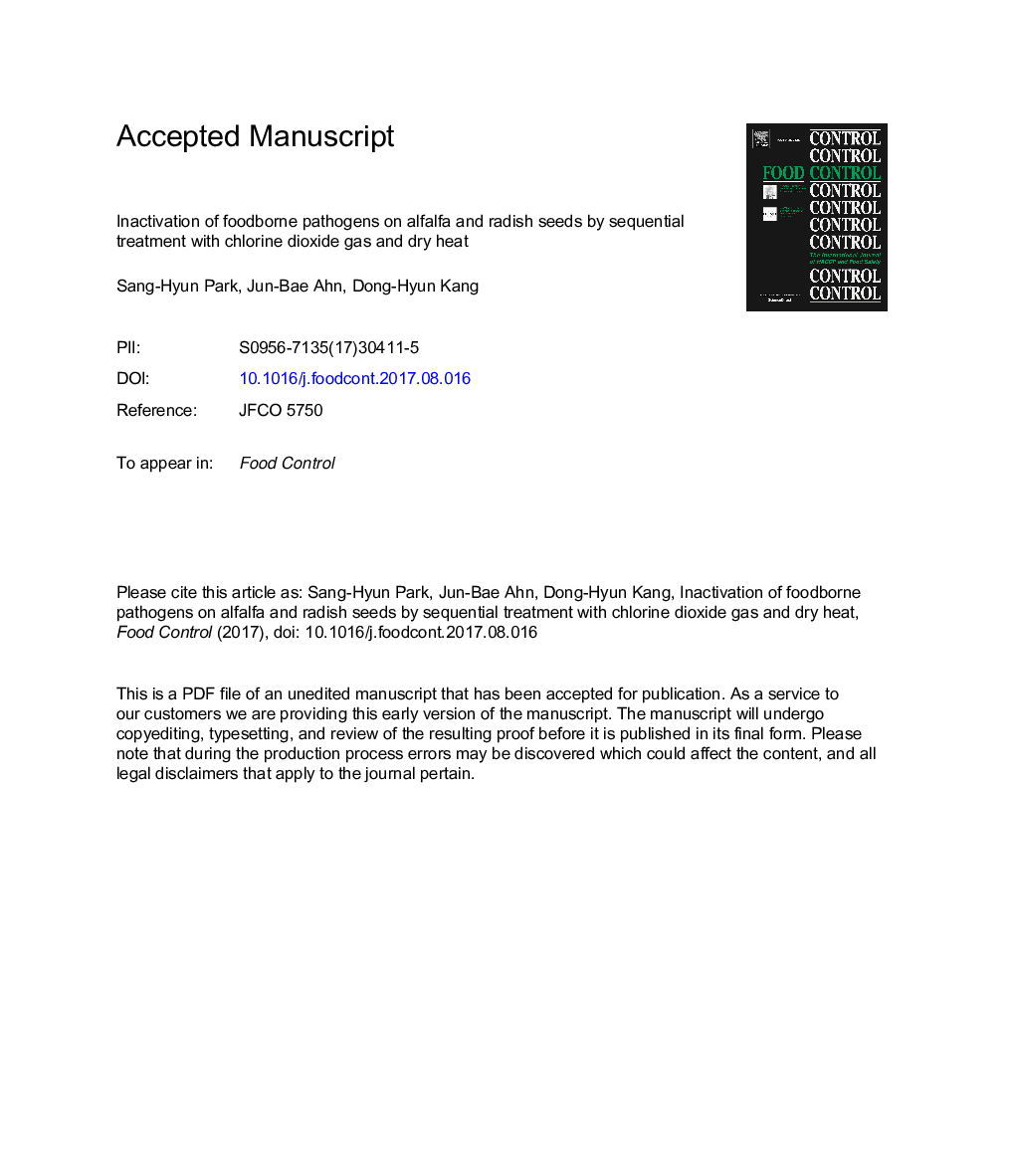| Article ID | Journal | Published Year | Pages | File Type |
|---|---|---|---|---|
| 8888218 | Food Control | 2018 | 27 Pages |
Abstract
This study was conducted to evaluate the antimicrobial effect of sequential treatment with chlorine dioxide (ClO2) gas and dry heat against Escherichia coli O157:H7 and Salmonella Typhimurium on alfalfa and radish seeds. Inoculated alfalfa and radish seeds were treated with 150 ppmv of ClO2 gas for 1 h followed by 70 or 80 °C dry heat for 0, 1, 3 or 5 h. Dry heat treatment alone at 80 °C for 5 h resulted in 3.08 and 3.23 log reductions of E. coli O157:H7 and S. Typhimurium on alfalfa seeds, respectively. ClO2 gas treatment alone for 1 h resulted in 1.22-1.58 and 1.45 to 1.61 log reductions of E. coli O157:H7 and S. Typhimurium, respectively. Subsequent dry heat treatment (80 °C) for 5 h caused more than 5.32 and 5.29 log reduction of E. coli O157:H7 and S. Typhimurium, respectively. On radish seeds, dry heat treatment at 80 °C for 5 h resulted in 2.49 and 2.27 log reductions of E. coli O157:H7 and S. Typhimurium, respectively, and sequential treatment with ClO2 gas and dry heat (80 °C) for 5 h caused 4.38 and 4.11 log reduction of E. coli O157:H7 and S. Typhimurium, respectively. The germination rate of seeds did not significantly decrease after sequential treatment except for radish seeds sequentially treated with ClO2 gas and dry heat at 80 °C for 5 h.
Keywords
Related Topics
Life Sciences
Agricultural and Biological Sciences
Food Science
Authors
Sang-Hyun Park, Jun-Bae Ahn, Dong-Hyun Kang,
